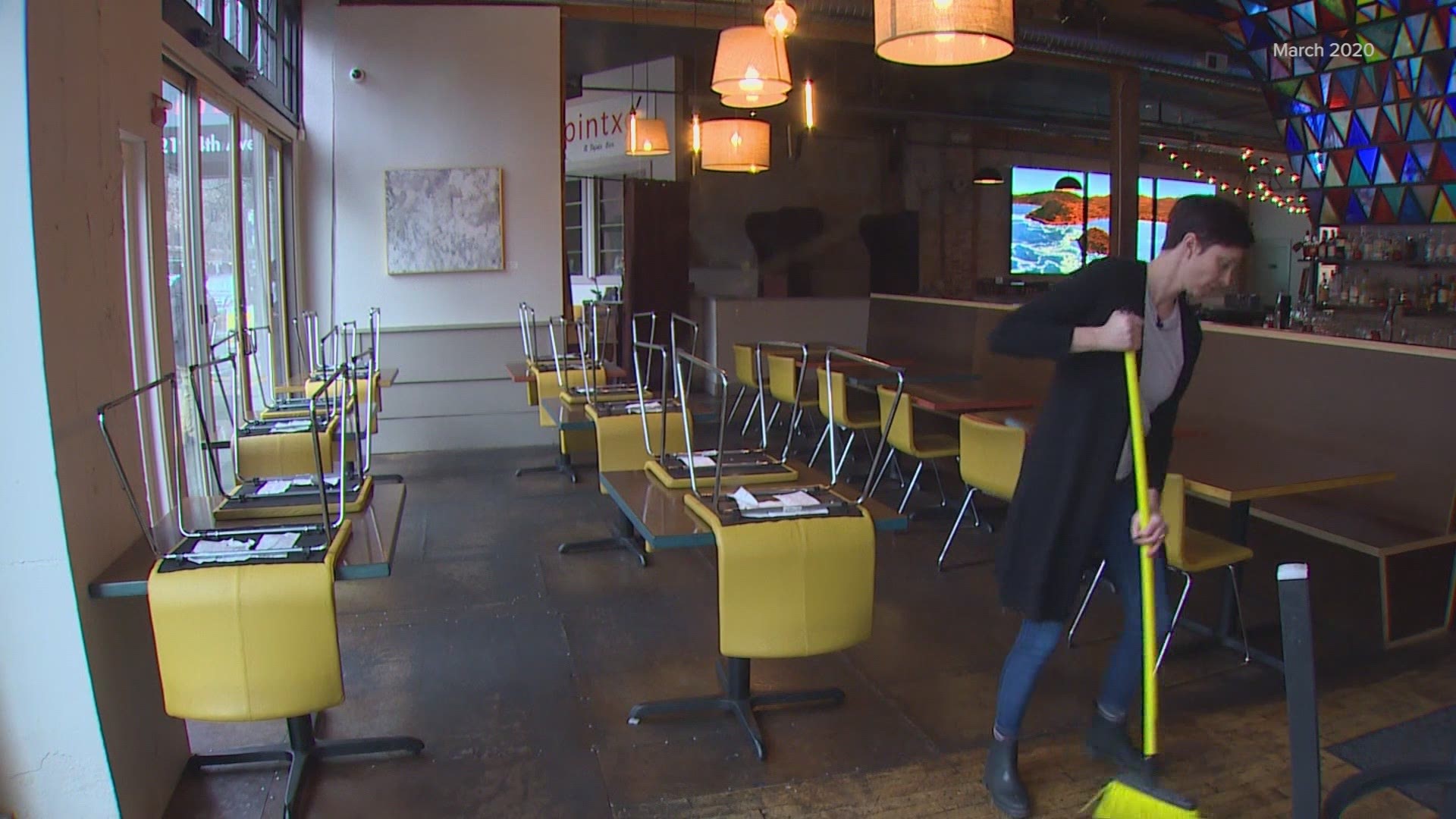SEATTLE — In March 2020, Amanda Chigbrow found herself packing up her restaurant Pintxo, stacking chairs and clearing settings from tables. The popular Seattle tapas joint was an early casualty of the coronavirus pandemic and social distancing measures, and closed permanently.
It was an emotional experience and at the time she shared her thoughts on the uncertain future, reflecting on what the restaurant and bar Branchwater had meant to her father, who had recently passed.
“It’s especially bittersweet,” she said. “But it had a lot of life in it, so that’s good.”
Now a year later, bittersweet is still a word she uses to describe the months that followed.
“And we went home, and we stayed home,” Chigbrow said. “Both my husband and I were out of work, and the restaurant was our job and livelihood. And we hunkered down in our house and spent time with our young kids.”
That’s the "sweet" in bittersweet – more time with her family this year, as the restaurants that remain open have struggled to stay afloat.
But like millions of Americans, the pandemic forced the Chigbrows to look for new work. Unemployment skyrocketed last spring, and remains elevated now due to distancing measures, furloughs and layoffs.
They are not alone in this experience. A recent Pew Research Center survey found 66% of unemployed adults have “seriously considered changing their occupation or field of work.” Slightly more than half still felt optimistic about finding work.
For Chigbrow, pivoting meant returning to a job from her younger years – nannying for a family friend. Her husband Cory is working to get into tech as a product manager, translating years of restaurant experience to a new sector. But they cast a wide net while considering options, mulling turns to real estate, or even opening a new restaurant.
It was a mid-career shift neither expected at this stage in life.
Chigbrow said her experience this past year has been a lesson in resiliency. But she felt prepared by the difficult job of running her own business in a notoriously difficult industry.
“Making it through this year, with the loss we experienced, this has been a lot easier than the daily grind or required resiliency of restaurant ownership,” she sad.
She expects her husband’s career switch to be permanent, while she would consider getting back into restaurants, though not as an owner. But she misses the buzz and atmosphere of a busy night of service.
And she does have advice for those facing similarly dire employment straits: keep an open mind, because change can sometimes bring newer, better things.
“Explore options that maybe you didn’t think were possible for you, because there’s a lot out there in the world that we didn’t even know existed for us,” Chigbrow said.

